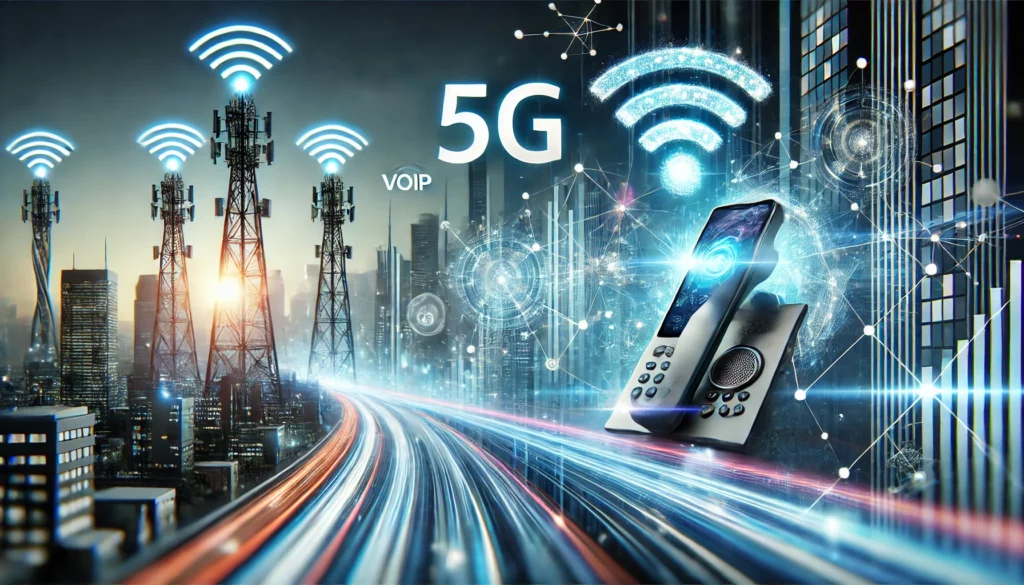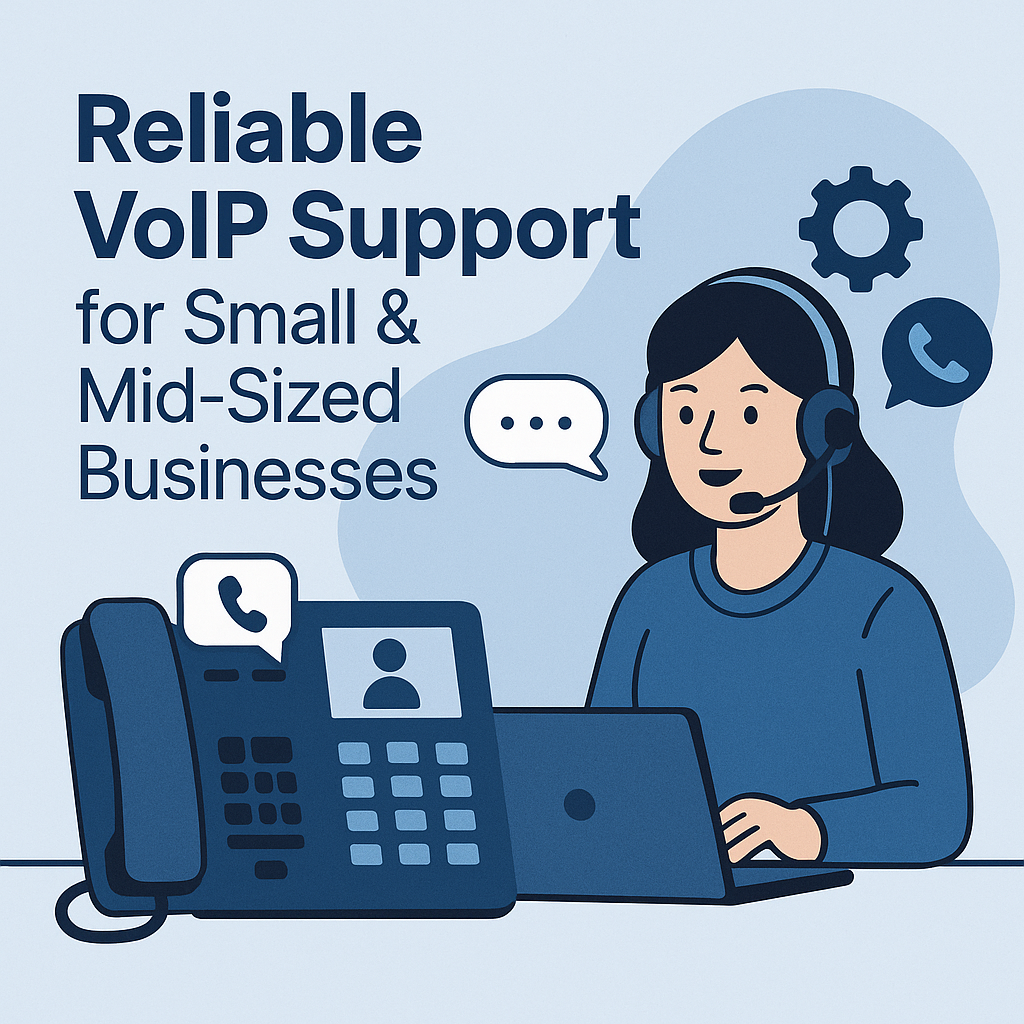How 5G Supercharges VoIP Support and Performance

Voice over Internet Protocol (VoIP) has become an essential technology for modern communication. By leveraging the internet to transmit voice and video calls, VoIP allows for affordable, flexible, and scalable communication solutions. However, the effectiveness of VoIP heavily relies on the underlying network infrastructure. With the advent of 5G, VoIP service providers and users are witnessing transformative changes. 5G’s unparalleled speed, ultra-low latency, and enhanced network capacity are setting new standards for VoIP support and performance, providing unprecedented opportunities for businesses and individuals.
Understanding 5G Technology
5G is the fifth generation of wireless network technology, and it represents a quantum leap in connectivity. Unlike 4G and LTE, which laid the groundwork for mobile broadband, 5G is engineered to support the demands of next-generation communication technologies, including VoIP. Here are the key features that make 5G unique:
- Faster Speeds: 5G networks deliver speeds up to 10 Gbps, making it 100 times faster than 4G. This speed ensures uninterrupted, high-quality audio and video communication.
- Ultra-Low Latency: Latency refers to the delay in data transmission. With 5G, latency drops to as low as 1 millisecond, enabling near-instantaneous communication—a critical factor for VoIP performance.
- Massive Connectivity: 5G can support millions of devices per square kilometer, making it ideal for dense urban environments or IoT ecosystems where VoIP is often integrated.
These capabilities make 5G indispensable for VoIP service providers, allowing them to offer enhanced quality and reliability to their customers.
What is VoIP and Why is it Important?
VoIP, or Voice over Internet Protocol, is a technology that transmits voice calls over the internet instead of traditional phone lines. By converting voice signals into digital data packets, VoIP makes communication more affordable and versatile. Businesses and individuals use VoIP for:
- Cost-Effective Calling: Reducing costs associated with traditional telephony.
- Scalability: Supporting growing user bases without significant infrastructure upgrades.
- Flexibility: Allowing remote work and global connectivity.
However, VoIP’s reliance on network quality can create challenges, especially on older infrastructure.
Challenges Faced by VoIP on Legacy Networks
Legacy networks like 3G and 4G often fall short in meeting the demands of modern VoIP applications. These challenges include:
- Bandwidth Constraints: Limited bandwidth often results in call drops, poor audio quality, and inconsistent video conferencing.
- High Latency: Delays in data transmission disrupt the real-time nature of voice and video communication.
- Packet Loss: When data packets fail to reach their destination, it results in degraded audio or video quality.
- Scalability Issues: Older networks struggle to handle the growing number of users and devices, especially in high-traffic environments.
To address these issues, many organizations rely on server support services to optimize their VoIP infrastructure. However, 5G offers a more comprehensive solution by eliminating many of these limitations.
How 5G Transforms VoIP Support
5G fundamentally changes how VoIP systems operate, addressing many of the challenges posed by older networks. Its key contributions include:
- Enhanced Bandwidth: The immense capacity of 5G ensures that VoIP applications can handle HD audio and 4K video calls without buffering or interruptions.
- Reduced Latency: Near-zero delays allow for real-time communication, essential for business meetings, customer support, and collaborative tools.
- Higher Network Capacity: 5G supports significantly more devices in a given area, enabling seamless VoIP communication even in crowded environments like stadiums or conferences.
VoIP service providers leveraging 5G can deliver superior performance, ensuring higher customer satisfaction and productivity.
Performance Benefits of 5G for VoIP
The combination of 5G and VoIP creates a host of performance benefits, revolutionizing how communication systems are used across industries.
1. Crystal-Clear Audio
5G ensures that audio signals are transmitted with minimal interference, delivering high-definition voice quality. Even in noisy environments or during peak traffic hours, users can expect clarity and stability in their calls.
2. Flawless Video Conferencing
Whether it’s a one-on-one meeting or a large video conference, 5G makes it possible to stream HD and 4K videos without lag. This is particularly useful for remote teams that rely on video communication for collaboration.
3. Uninterrupted Connectivity
With 5G, users experience fewer dropped calls and interruptions. Businesses offering desk top support or remote assistance can rely on consistent communication to address customer needs effectively.
4. Support for Emerging Technologies
5G enables the integration of AI, AR/VR, and IoT into VoIP platforms. For example, augmented reality-enhanced video calls and AI-driven real-time transcription are now possible.
The Role of 5G in Unified Communication Platforms
Unified communication platforms combine VoIP, video conferencing, messaging, and collaboration tools into a single system. 5G enhances these platforms by:
- Enabling Cloud Integration: VoIP support aligns seamlessly with cloud-hosted solutions, providing access to communication tools from any location.
- Improving IoT Communication: Smart devices like virtual assistants and video-enabled doorbells use VoIP to communicate effectively over 5G networks.
- Facilitating Real-Time Collaboration: Teams can work together more efficiently with real-time audio and video sharing, boosting productivity.
Scalability and Reliability of VoIP with 5G
Businesses often face scalability challenges as they grow. With 5G, VoIP systems become inherently scalable and reliable.
- Increased User Capacity
5G networks can support thousands of simultaneous users without compromising quality. This is particularly useful for large organizations or public events. - Network Slicing
5G enables network slicing, where portions of the network are dedicated to specific applications or departments. This ensures uninterrupted service for VoIP applications while isolating critical communications. - 24/7 Reliability
Server support services can rely on 5G’s robust architecture to ensure round-the-clock uptime for VoIP systems, minimizing disruptions and improving customer satisfaction.
Security and Privacy Enhancements with 5G VoIP
As VoIP becomes more prevalent, security concerns are a major consideration. 5G addresses these concerns with:
- Advanced Encryption: Protecting sensitive voice and video data from unauthorized access.
- Network Isolation: Dedicated network slices reduce the risk of cross-traffic interference.
- Resilience to Cyber Threats: Enhanced security protocols prevent eavesdropping and data breaches.
Businesses offering server support services can leverage these security features to deliver more secure VoIP solutions.
5G-Enabled VoIP in Different Industries
5G VoIP is transforming communication across various industries:
- Healthcare: Enables telemedicine with high-quality video consultations and real-time data sharing.
- Education: Facilitates virtual classrooms with interactive tools and seamless video calls.
- Business: Supports hybrid work models by offering reliable communication tools for desk top support and team collaboration.
- Public Services: Provides emergency responders with reliable communication during crises.
Cost Benefits of 5G for VoIP Users
5G’s efficiency also translates into significant cost benefits for businesses and individual users:
- Lower Infrastructure Costs: With better network reliability, companies need fewer hardware upgrades.
- Reduced Maintenance Expenses: Fewer disruptions mean less reliance on server support services.
- Optimized Resources: Enhanced bandwidth and connectivity reduce operational inefficiencies.
FAQs: How 5G Enhances VoIP Support
1. What is 5G, and how does it differ from 4G?
5G is the fifth-generation wireless technology that offers significantly higher speeds, lower latency, and greater connectivity compared to 4G. It supports real-time applications like VoIP, enabling high-definition voice and video calls without disruptions.
2. How does 5G improve VoIP call quality?
With its enhanced bandwidth, ultra-low latency, and increased capacity, 5G eliminates issues like dropped calls, lag, and poor audio quality. This results in crystal-clear communication, even in high-traffic environments.
3. Are there security concerns with 5G VoIP?
While 5G enhances VoIP security with advanced encryption and network isolation, potential risks like cyberattacks still exist. Partnering with trusted VoIP service providers and server support services can help mitigate these risks.
4. What industries benefit the most from 5G VoIP?
Industries like healthcare, education, business, and public services benefit greatly from 5G VoIP. For example, telemedicine, virtual learning, and hybrid work environments all rely on high-quality communication tools.
5. Is 5G necessary for small businesses using VoIP?
Small businesses can greatly benefit from 5G, especially if they rely on remote work or high-quality customer interactions. While not mandatory, 5G ensures better performance, scalability, and reliability.
6. What are the costs associated with upgrading to 5G VoIP?
Upgrading involves investing in compatible devices and network plans. However, the long-term savings from reduced maintenance, fewer disruptions, and better call quality often outweigh the initial costs.
Conclusion
The synergy between 5G and VoIP marks a new era of communication. By addressing the limitations of older networks and introducing unprecedented capabilities, 5G empowers VoIP service providers to deliver unparalleled quality, scalability, and security. Businesses and individuals alike stand to benefit immensely, from improved call clarity to cost savings and innovative applications. As 5G adoption accelerates, embracing this technology will be essential to staying competitive in a fast-evolving digital landscape.




No comment